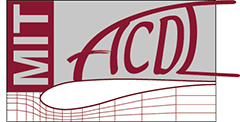ABSTRACT: Numerous problems in geometry processing and shape analysis can be posed variationally, seeking optimal geometric structures like vector fields, frame fields, and metric tensors. While many of these problems reduce to linear PDEs that can be tackled using standard solvers, more complex formulations involving volumetric shapes, inequality constraints, and nonlinear objective functions require more specialized consideration. In this talk, I will discuss some recent efforts in my group to tackle these sorts of optimization problems, drawn from applications in volumetric meshing, learning from surfaces, skinning-based computer animation, and other topics. By coupling careful discretizations with efficient optimization methods, we can formulate top-performing algorithms for these tasks backed by smooth theory.
BIO: Justin Solomon is an associate professor in MIT’s Department of Electrical Engineering and Computer Science and a principal investigator at the Computer Science and Artificial Intelligence Laboratory, where he heads the Geometric Data Processing Group. His group aims to widen the scope of applied geometry in computing to analyze complex shapes, networks, maps, datasets, and other modalities. Areas of focus include transitioning optimal transport from theory to practice, addressing theoretical and algorithmic challenges in 3D shape analysis, and developing architectures for learning from geometric data. Solomon and his group respond to challenges at the intersection of geometry and computation in a broad range of applications as technology emerges – making sure that robots and autonomous vehicles can navigate their environments safely and reliably, that political redistricting practices are established fairly, that physical systems can be simulated virtually with high fidelity, and that medical diagnoses are responsive to subtle changes in shape.
Solomon worked at Pixar Animation Studios and was a postdoc in the Princeton Program in Applied and Computational Mathematics. His textbook Numerical Algorithms covers numerical methods for geometry, graphics, robotics, and other computational areas. He earned a PhD in computer science at Stanford University.

